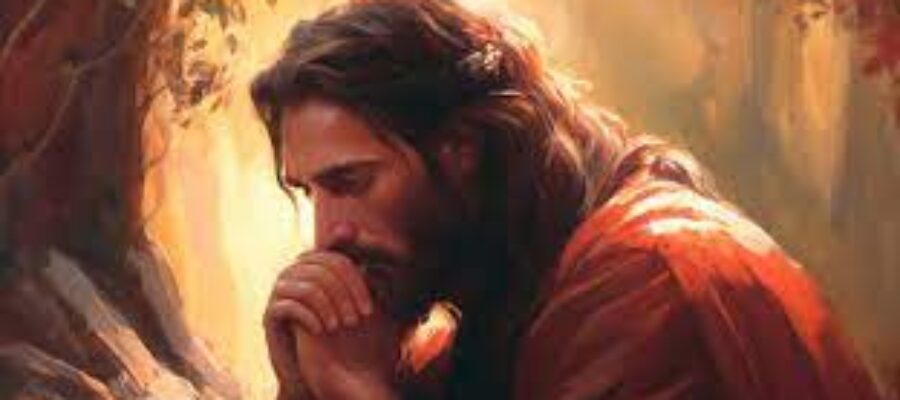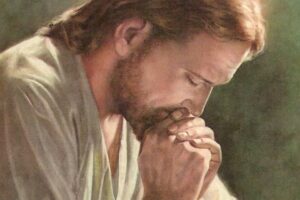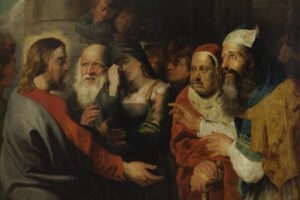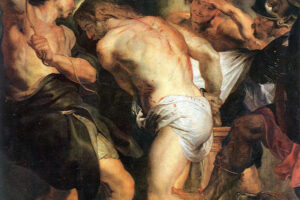“Come, let us return to the LORD,
it is he who has rent, but he will heal us;
he has struck us, but he will bind our wounds.
He will revive us after two days;
on the third day he will raise us up,
to live in his presence.
Let us know, let us strive to know the LORD;
as certain as the dawn is his coming,
and his judgment shines forth like the light of day!
He will come to us like the rain,
like spring rain that waters the earth.”
What can I do with you, Ephraim?
What can I do with you, Judah?
Your piety is like a morning cloud,
like the dew that early passes away.
For this reason I smote them through the prophets,
I slew them by the words of my mouth;
For it is love that I desire, not sacrifice,
and knowledge of God rather than burnt offerings.
Hosea 6: 1-6
Hosea was a minor prophet who lived around 800 BC. His personal life parallels his prophetic message. Although his wife Gomer commits adultery, and Hosea by law would have been justified in divorcing her, God spurs Hosea to bring her home. This is the same movement from love, to falling into sin, to the gift of mercy and forgiveness, and to a return home that we’ll see echoed in Hosea’s prophetic utterances:
The Lord said to me, “Go, show your love to your wife again, though she is loved by another man and is an adulteress. Love her as the Lord loves the Israelites, though they turn to other gods and love the sacred raisin cakes.”
So I bought her for fifteen shekels of silver and about a homer and a lethek of barley. Then I told her, “You are to live with me many days; you must not be a prostitute or be intimate with any man, and I will behave the same way toward you.”
Hosea 3: 1-3
Forgiveness begets love, and Love begets love. Hosea tastes and sees the goodness of God through his trust in the fidelity of God and not the norms of man.
“Return” is an important Word throughout salvation history. It’s a core tenet of Lent sitting inside a macro narrative that repeats itself as we zoom in and out of our experience of teetering back and forth in our precarious balancing act of living in this world without being of it.
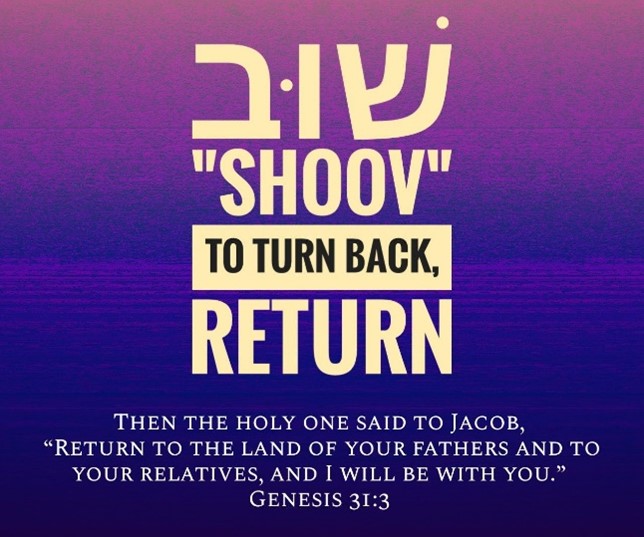
The act of returning requires repentance. The word in Hebrew for repentance is teshuvah. Look at the word constructed in Hebrew…
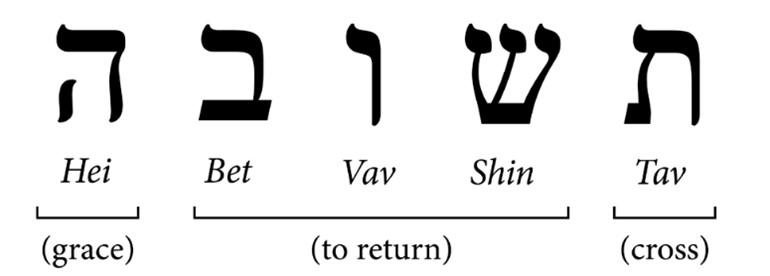
We see the Hebrew word for return “Shuv” surrounded by the Hebrew characters for the words “Grace” and “Cross.” We read Hebrew from right to left so literally, repentance means…
[by the] Cross [we] Return [to] Grace. WOW!
By the Blood of Christ shed on the cross we can return to a state of Grace – where Grace is a place of favor and relationship with the Triune God (Father, Son & Holy Spirit).
Come, let us return to the LORD,
it is he who has rent, but he will heal us;
he has struck us, but he will bind our wounds.
To “rent” is to rip something apart. It’s used throughout scripture to describe people’s remorse for their failures, their experience of grief, and their intense relentless sorrow.
Even if we’ve been “rented” – that is ripped apart by life, by our choices, or by God allowing us to be humbled by our missteps, – God ALWAYS has our backs.
The prophet Joel sheds light on this Lenten call to repentance:
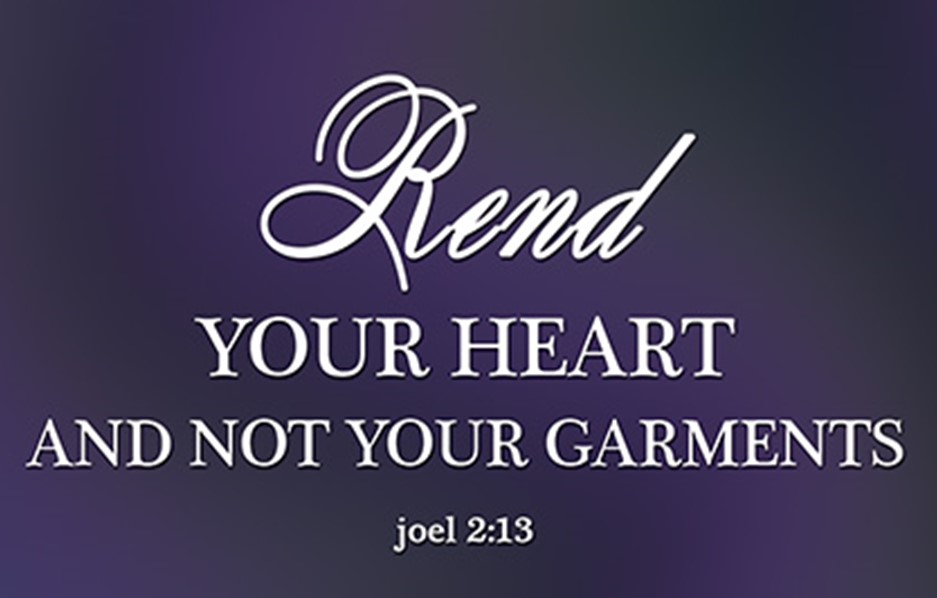
We are to rend our hearts. Garments represent the physical outward parts of our lives. Our hearts represent the spiritual nature of our Life in and with Christ.
Are we ripping open our hearts so that the Holy Spirit can pour His Love into our temples? Doing so attracts Jesus Christ to indwell deeper in us and shine with ever brighter Light.
God promises to heal us, and Hosea begins his prophecy with this assertion. The means of this healing points to the resurrection:
He will revive us after two days;
on the third day he will raise us up,
to live in his presence.
This is too good to be true which is what gives away that such AWESOME GOODNESS can only be from God – our Lord Jesus Christ: the Way, Truth, and Life!
Hosea directs our sacred imaginations with diffusive fertile poetry describing the way Jesus becomes the rain:
He will come to us like the rain,
like spring rain that waters the earth.
We are eagerly standing by waiting for Easter so that we can exit the parched Lenten desert and step into our inheritance of lush verdant pastures overflowing with Baptismal Living Waters. Here Christ reigns as our Shepherd King.
Hosea goes to the root of the chosen people calling out two sons of Jacob. Ephraim who is a reflection of the most fallen prideful tendencies of man living without God. Take note that the tribe of Ephraim is completely lost to Israel. This is a harsh spot-on reminder that if we allow our natures to be untouched by God we are lost in every sense of that word.
Jacob’s other son Judah will struggle but becomes the strongest, and surviving to this day, tribe of Israel despite every effort by man and evil spirits alike to wipe them off the face of the earth.
Hosea describes how countless prophets will come to the people of Israel and “cut them to pieces” (this the NIV scriptural translation of the word “smote”).
When God’s Word falls short in moving the hearts, minds, spirits, and bodies of His children, God takes action. By the way please don’t be fooled. Today is no different than antiquity. The Word of God presents not just historical stories of past times but reveals the same God yesterday, today, and tomorrow.
Our Father sends His only Son Jesus who is the Divine Template of Perfect Unconditional Selfless Love. Jesus models the way of Love; this is the Kingdom of God.
For it is love that I desire, not sacrifice,
and knowledge of God rather than burnt offerings.
No sacrifice is necessary when Love is the fabric that ties all things back to God in endless Communion. Love and sacrifice become indistinguishable from one another. We don’t need to look any further than our tenures as parents, siblings, or close friends. Maybe some of our caring acts viewed from an outside perspective may look like sacrifice but ask the person involved in acting, and you’ll likely hear a different story.
Our knowledge of God is found in Jesus. St. John’s gospel beautifully records the words of Jesus to the apostles and disciples at the Passover Last Supper.
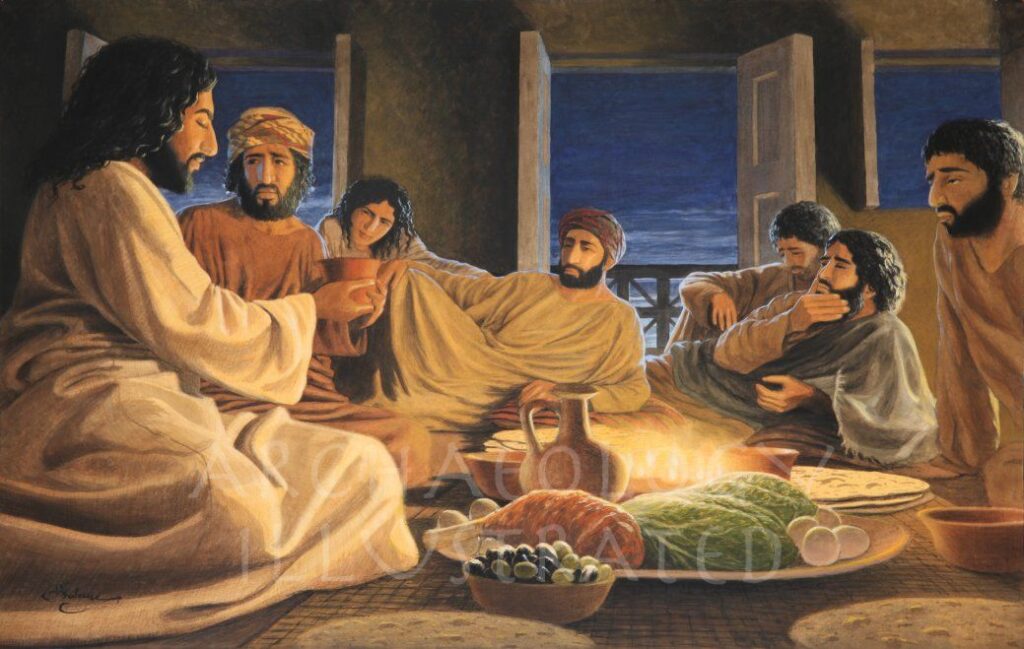
If you know me, then you will also know my Father. From now on you do know him and have seen him.”
Philip said to him, “Master, show us the Father,* and that will be enough for us.”
Jesus said to him, “Have I been with you for so long a time and you still do not know me, Philip? Whoever has seen me has seen the Father. How can you say, ‘Show us the Father’?
Do you not believe that I am in the Father and the Father is in me? The words that I speak to you I do not speak on my own. The Father who dwells in me is doing his works.
Believe me that I am in the Father and the Father is in me, or else, believe because of the works themselves.
John 14: 7-11
Our knowledge of God begins with our invitation to the wedding feast of the Lamb; by consuming Jesus and uniting ourselves completely to Him now and forever. We are called to pursue God as fervently and devotedly as He pursues us. Our co-pursuits will transform the inorganic carbon coal of our lives into a Finer’s gold.
Lord, please bless our Lenten journeys. Grant us an ever greater participation and place in your Mystical Body. Let us emerge from Lent as new people. Help us to repent, rend our hearts, heal us with the Grace of Your Mercies, and take complete possession of us. We ask all theses things in the name of Jesus Christ. AMEN


